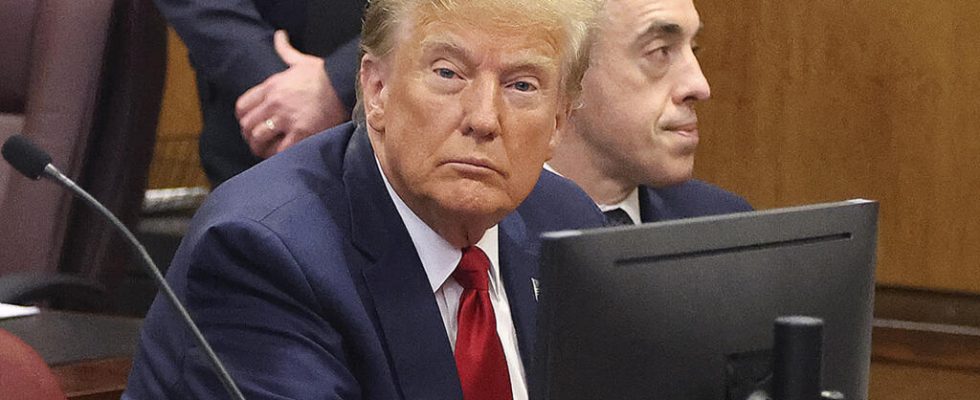The highest American court announced on Wednesday that it had agreed to take up the question of the criminal immunity of Donald Trump as a former president. The debates will take place “the week of April 22”.
2 mins
Donald Trump should he benefit from a “absolute immunity” for his actions committed during his mandate as president of the UNITED STATES, as his defense hammers him? This is the question that the American Supreme Court agreed to address this Wednesday.
In an unsigned statement, the country’s highest court says it will consider ” whether and, if so, to what extent a former president enjoys presidential immunity from criminal prosecution for conduct alleged to involve official acts while in office “.
Multiplication of appeals
The trial of the former Republican president for illicit attempts to reverse the results of the election won by Democrat Joe Biden was initially scheduled to begin on March 4.
But the big favorite in the Republican primaries for the November presidential election is seeking through his multiple appeals to go to trial as late as possible, at least after the vote. He is currently facing four separate criminal charges.
But the entire procedure was suspended while the question of criminal immunity claimed by Donald Trump was decided by the courts. On February 6, a federal appeals court ruled out this criminal immunity. Donald Trump therefore turned to the Supreme Court to obtain a suspension of the entry into force of this decision.
Four criminal charges
Thus, by agreeing to take action, the Supreme Court is partly satisfying Donald Trump by not allowing the appeal decision to come into force until it has made its own decision. But by deciding to debate in April, a relatively short deadline, she also granted the request of special prosecutor Jack Smith who wanted the Court, if it looked into the question, to do so in an accelerated manner.
But most legal and political commentators emphasized Wednesday evening that it was a success for Donald Trump’s delaying strategy, since the Supreme Court’s decision further reduces the chances that the trial could take place before the election presidential, even if the nine judges rejected his immunity. If he were elected again, once inaugurated in January 2025, he could order a halt to federal proceedings against him.
Read alsoUnited States: what legal proceedings are underway against Donald Trump?
(With AFP)
